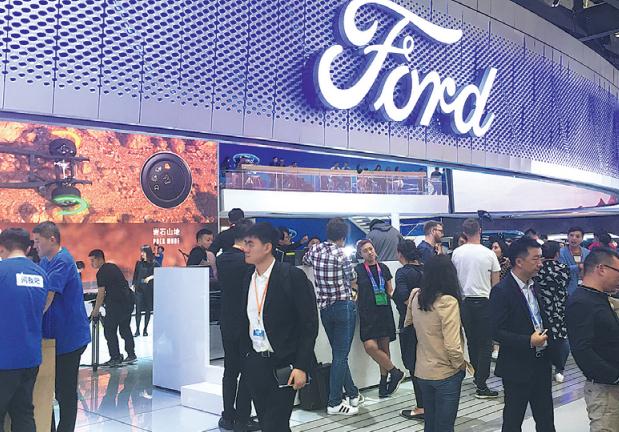Carmakers, tech companies join hands to charge ahead in smart mobility race
By Cao Yingying | China Daily | Updated: 2018-07-09 11:18

As sweeping changes transform the automotive industry, carmakers are joining hands with leading technology companies to enhance their competitiveness.
In the latest of such collaborations, Chongqing Changan Automobile Co and Huawei Technologies Co inked a strategic agreement last Wednesday to establish an innovation center as a platform to develop the internet of vehicles.
The two will make use of Huawei's advantages in information technology and new energy control systems and conduct research on advanced technical application scenarios and carriers provided by Changan.
Changan Chairman Zhang Baolin said that the automobile industry is facing bigger opportunities and challenges, including younger buyers and new technology modes, which requires automakers to have more open minds.
Besides Huawei, Changan has also partnered with internet giants Tencent, iFlytek, Intel and Baidu.
In June, Ford Motor China and Baidu joined forces to develop the internet of vehicles, artificial intelligence and digital marketing, strengthening their cooperation after Ford became a founding member of Baidu's Apollo autonomous driving program last July.
Ford and Baidu are cooperating on a new in-vehicle infotainment system and digital services based on Baidu's DuerOS conversational AI system, which features the functions of voice recognition, natural language understanding and image recognition.
The two also plan to establish a joint laboratory to explore innovation opportunities across their automotive and mobility businesses in China and for the internet of vehicles and develop AI technology, cloud computing and big data.
Guangzhou Automobile Group Co Ltd is another Chinese auto company that is making efforts to promote intelligent and internet-connected driving technologies.
The Guangzhou-based automaker partnered with Tencent last September and unveiled its iSPACE electric concept car equipped with Tencent's AI in-Car system, which it says allows drivers to better interact with their vehicles.
After seven months, the company's subsidiary GAC Motor released its new Qiyun smart SUV last month, which is an upgraded version of the brand's best-selling GS4 SUV with multiple smart technology enhancements for a stay-connected mobile lifestyle.
"The new GS4 marks the beginning of GAC Motor's new approach to facing the challenges, opportunities and competition in the era of technological revolution and industrial transformation," Yu Jun, president of GAC Motor, said in a recent news release.
"In the future, we will work with leaders in digital technology including Tencent, iFlytek and AutoNavi, to bring about more breakthroughs in the field of smart driving."
Yale Zhang, managing director of consultancy firm Automotive Foresight, said that the collaborations between traditional automobile groups and IT giants will produce mutual benefits and win-win results.
"The cooperation will take advantage of both sides' expertise to promote the development of autonomous driving, which is the future of the industry," said Zhang.
John Zeng, managing director of LMC Automotive Shanghai, said as the trend of intelligent cars is becoming more evident, partnerships between carmakers and technology companies will become more common in the future.
But he warned the results may take a long time to reach the market because such cooperation must be balanced to produce results both parties desire. He added that besides partnerships, mergers and acquisitions among carmakers and technology companies may also occur in the future.
























